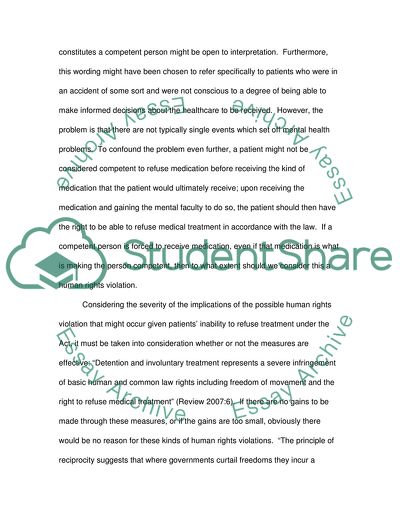Cite this document
(Mandatory Mental Health Services Case Study Example | Topics and Well Written Essays - 1500 words, n.d.)
Mandatory Mental Health Services Case Study Example | Topics and Well Written Essays - 1500 words. Retrieved from https://studentshare.org/health-sciences-medicine/1719732-sgy310sp4-human-services-policy-analysis-report-1500-to-2000-words
Mandatory Mental Health Services Case Study Example | Topics and Well Written Essays - 1500 words. Retrieved from https://studentshare.org/health-sciences-medicine/1719732-sgy310sp4-human-services-policy-analysis-report-1500-to-2000-words
(Mandatory Mental Health Services Case Study Example | Topics and Well Written Essays - 1500 Words)
Mandatory Mental Health Services Case Study Example | Topics and Well Written Essays - 1500 Words. https://studentshare.org/health-sciences-medicine/1719732-sgy310sp4-human-services-policy-analysis-report-1500-to-2000-words.
Mandatory Mental Health Services Case Study Example | Topics and Well Written Essays - 1500 Words. https://studentshare.org/health-sciences-medicine/1719732-sgy310sp4-human-services-policy-analysis-report-1500-to-2000-words.
“Mandatory Mental Health Services Case Study Example | Topics and Well Written Essays - 1500 Words”, n.d. https://studentshare.org/health-sciences-medicine/1719732-sgy310sp4-human-services-policy-analysis-report-1500-to-2000-words.


